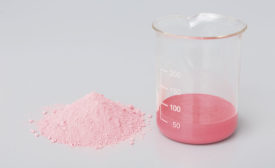Featured on Home Page
Transportation Coatings Outlook
Increase in Demand for Passenger Cars and New Shipbuilding Will Drive the Growth of Transportation Coatings
Read More
Digitize to Optimize
Case Study: the Future of R&D Through an Outsourced, Cloud-Based Data Platform
Read MoreNew Polymeric Dispersants
Provide Improved Stability and Color Properties for Industrial Waterborne Coatings
Read More
Keep the info flowing with our eNewsletters!
Get the latest industry updates tailored your way.
JOIN TODAY!Copyright ©2025. All Rights Reserved BNP Media.
Design, CMS, Hosting & Web Development :: ePublishing











